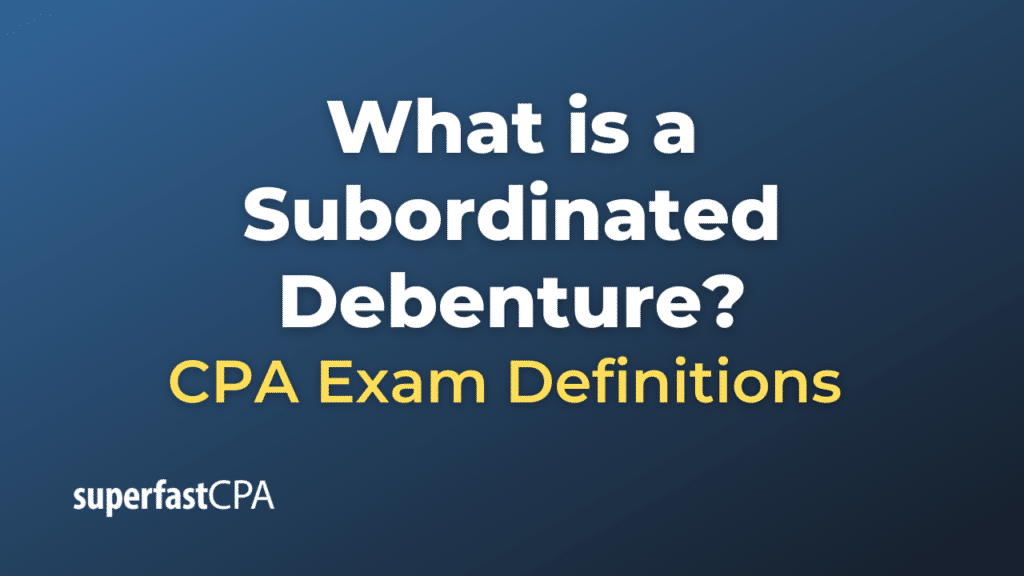Subordinated Debenture
A subordinated debenture is a type of debt security that ranks lower than other debts in terms of claim to the issuer’s assets if the company were to go bankrupt or face liquidation. In other words, if a company goes under and its assets are sold off, holders of subordinated debentures get paid only after all senior and unsecured creditors have been paid.
These debentures come with a higher risk than senior debts because they are lower in the pecking order of repayment. Consequently, issuers of subordinated debentures typically offer higher interest rates to entice investors to compensate for the additional risk.
It’s worth noting that within the category of subordinated debentures, there may be varying degrees of subordination. Some subordinated debentures might be senior to others, depending on the specific terms and conditions laid out in the issuing agreement.
Companies issue subordinated debentures as a way to raise capital without diluting ownership (as would be the case with issuing equity). Since these instruments come with higher risks, they are more commonly issued by companies with strong credit ratings or companies that can offer attractive interest rates to potential investors.
Investors should carefully review the terms of any debenture or bond offering, understand the associated risks, and consider their own risk tolerance and investment objectives before deciding to invest.
Example of a Subordinated Debenture
Let’s look at a hypothetical scenario involving a company issuing subordinated debentures.
Scenario: “TechEdge Innovations Inc.”
Background: TechEdge Innovations Inc. is a tech company that has been growing steadily over the past decade. While they’ve historically relied on equity financing, they are now looking to raise capital without diluting current shareholders’ ownership. They decide to issue bonds. To make the offering more attractive and due to their strong credit rating, they opt to issue subordinated debentures.
Issuance: TechEdge Innovations Inc. issues $10 million worth of subordinated debentures with a 5-year maturity and an annual interest rate of 7%. This interest rate is higher than what’s being offered on standard corporate bonds in the market, which hover around 5%.
Investor Perspective: Investors who are searching for higher yields and are comfortable with the risk profile of TechEdge might find these debentures attractive. They understand that in the event of bankruptcy or liquidation, their claims will be addressed after those of senior creditors. However, given TechEdge’s strong market position and financial health, they believe the risk-reward profile is favorable.
Fast Forward: Three years later, TechEdge faces unexpected competition, leading to financial difficulties. They have both senior debt and these subordinated debentures on their books. When they struggle to meet all their debt obligations, the senior debt holders are prioritized for repayments. Subordinated debenture holders recognize their risk, as they might receive less than the full amount owed or face delayed payments.
This example showcases the inherent risk of subordinated debentures. While they often come with higher yields to compensate for this risk, in times of financial difficulty for the issuing company, holders of such instruments might find themselves in a less favorable position compared to senior debt holders.













